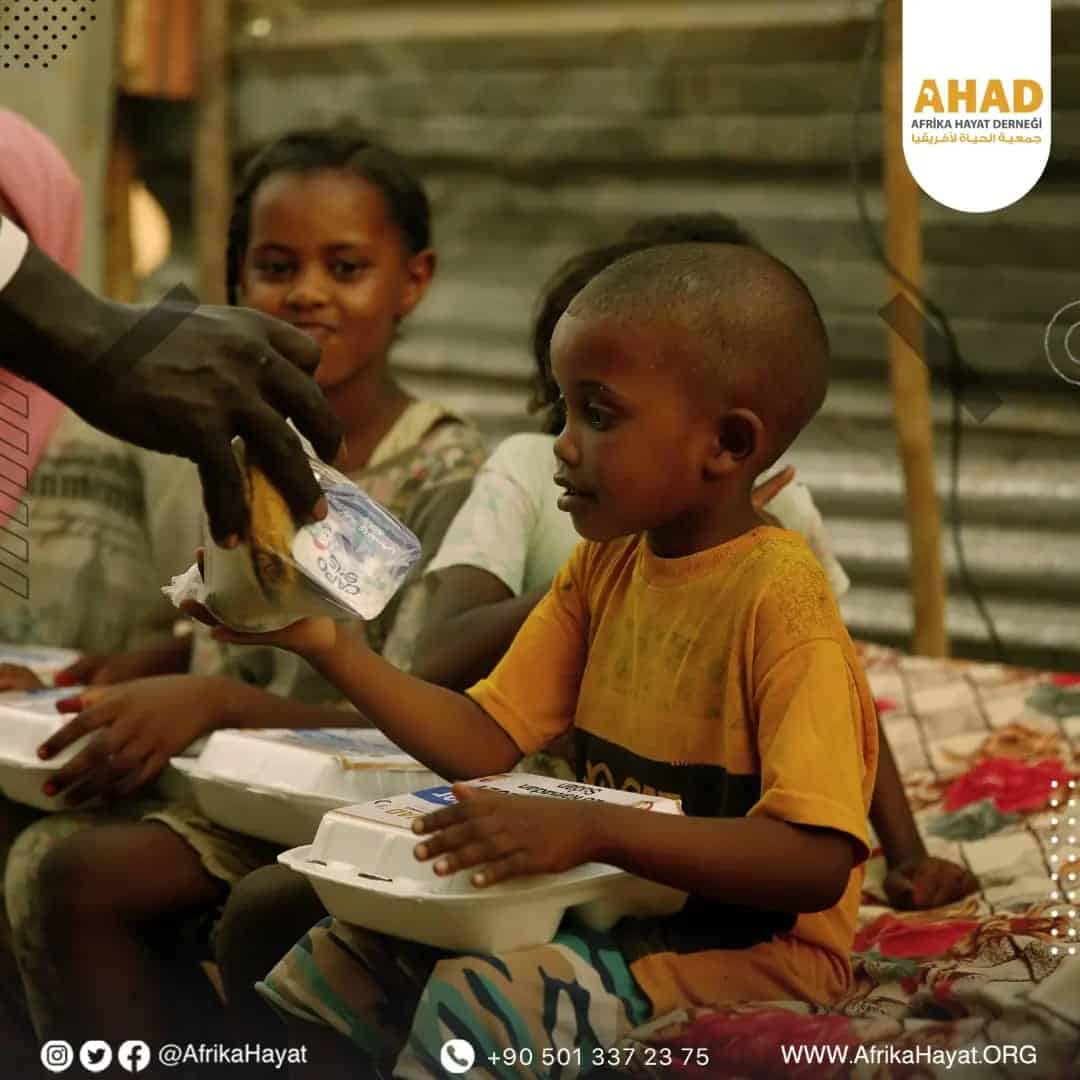Is fasting breakfast considered charity
It has been mentioned in the prophetic hadiths that breaking the fast is one of the works that brings reward and reward. It is emphasized in the Islamic religion that offering food to fasting people for their iftar constitutes a kind of charity. This is because charity is not limited only to money, but includes all forms of favor and charity from food, drink, help and support.
Fasting breakfast and charity pay
It is well known that charity is a great virtue, and when a person does a fasting iftar, he receives the reward of fasting without decreasing anything from the fasting person’s reward, as mentioned in the hadiths. In addition, breaking the fast is one of the acts that show solidarity and compassion between members of the same community. A person can serve a fasting breakfast in a variety of forms, be it by setting up compassionate tables, by distributing food parcels, or even by inviting fasting people to breakfast at home. The reward also comes from alleviating the suffering of the fasting person and sharing the moment of breaking the fast, thereby enhancing the values of cooperation and affection.
The legal provisions for Fasting breakfast
The Sharia provisions in Islam refer to the importance and virtue of breaking the fast; as this act is considered a current charity for which the doer is paid a large wage. Scientists consider that providing food to fasting people at the time of iftar is one of the good deeds that enter into the broad concept of charity, which is encouraged by the Islamic religion in various circumstances and circumstances. It is desirable that the iftar that is served to the fasting people includes what is useful and strengthens them from useful food after a long day of fasting, and it is abundant in dates and water on the Sunnah of the Prophet Muhammad (peace and blessings of Allaah be upon him).
Iftar fasting in Islamic law
The Islamic Sharia values the fasting iftar with the highest status because of its effective impact in spreading the values of cooperation and social cohesion. Islam is a religion that emphasizes the importance of teamwork and cooperation between members of society, and breaking the fast is one of the practical means to achieve this principle. According to the jurists, it is not required for a Muslim to be in an affordable economic situation to break the fast, but it is enough to take out what is available from food in order to reward and draw closer to Allah. What a person does that makes a fasting heart rejoice and softens his hardship after a day of work and worship is counted in the balance of good deeds.therefore, Islamic law encourages this work and emphasizes the great reward that follows from it.

Is fasting breakfast a charity
Methods of giving charity through fasting Iftar
Muslims can give charity through Iftar fasting in several ways, including preparing food parcels and distributing them to the needy, or contributing to iftar fasting collective projects organized by mosques and charities. Fasting people can also be invited to have breakfast at home, and charity is not limited to food only, but moral and spiritual support can be provided in these great moments by listening and empathizing with the fasting people. Muslims are interested in ensuring that these alms are nutritious and suitable for fasting people to replenish their energy after daytime fasting.
The benefits of giving charity in the month of Ramadan
The benefits of giving charity in the month of Ramadan are manifold; as the reward is doubled in this holy month, and giving charity enhances the manifestations of brotherhood and solidarity among Muslims. They also contribute to alleviating poverty and need among needy families, strengthen social ties and improve the level of solidarity in society. Iftar charity also helps the fasting person cleanse the soul and refine the personality, learn to give without expecting a return. This work helps to remember the rich in the grace of food, brings joy and pleasure to the hearts of the poor and poor. Iftar together is the embodiment of the values of equality and participation urged by Islam.
Ruling on iftar fasting on behalf of
Breaking the fast by acting is permissible in special cases according to Islamic law, such as a person’s inability to fast due to a chronic illness or advanced old age. In these cases, people can feed a poor man on behalf of every day he left fasting. However, it is stipulated that such an act must be in good faith and in accordance with the intentions of the person who cannot fast. It should be emphasized that the iftar of an acting fasting person is not considered a full-fledged substitute for the fast, but closer to social solidarity and compassion.
When is it permissible to break the fast on his behalf
The jurists allow the fasting person to break the fast on behalf of another person in certain cases, such as the inability to fast due to severe illness or old age that hinders the performance of fasting. Iftar by proxy is considered obligatory if a person has reached a stage where he fears for his life or health if he fasts. In addition, the acting fasting person must fulfill the feeding amounts in proportion to the number of days that break the fast on behalf of the excused person, and it is also stipulated that the food should be sufficient for at least one meal for one poor person.
Differences of judgments between fasting Iftar and charity
In Islamic law, there are clear differences between fasting Iftar and Sadaqah in terms of rulings and reasons. – Feeding the poor for the purpose of breaking the fast is considered a duty in the event that a person is unable to fast due to legitimate reasons such as illness or old age.- Charity is a voluntary work that can be performed at any time for the purpose of drawing closer to God and helping those in need, without being associated with a specific obligation such as fasting.- Iftar of the fasting person requires a special intention related to the day on which the person who is unable to fast breaks the fast, while charity is given without the need to specify the intention for a specific day.- The jurists specify certain amounts of food to be fed in the fasting person’s iftar, while there is no specific limit to charity, as one’s charity can be as much as money or food is available to him.

Is fasting breakfast a charity
Is fasting breakfast served as charity in some circumstances
In some cases, the fasting person’s breakfast can be described as charity, when it is served in a way that exceeds the legitimate duty.- If breaking the fast is done by feeding more than one poor person or in excess of the amount of food required by law, the increase is considered charity.- In cases of collective breakfast of the poor, where breakfast includes a large number of people, it can be considered a collective charity if the number exceeds the due.- However, it should be emphasized that the fasting person’s Iftar must be provided with a special intention and determination of intent to be counted as iftar, otherwise it is considered as a public charity without any connection with the fasting obligation.
You can visit the Ahad Association website to see more projects
Related articles:
Social and economic benefits of Zakat
Join us in our message by donating




